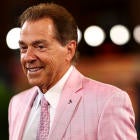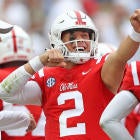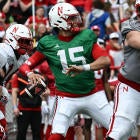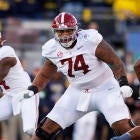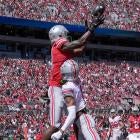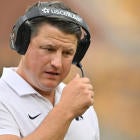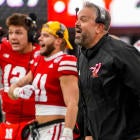The downfall for Les Miles was undoubtedly self-inflicted. No matter how likable he was, how many games he won in the past or how often he ate grass, Miles stubbornly refused to evolve on offense.
In a way, Miles became the latest and most prominent victim of Nick Saban. They were always compared to each other given Saban's past at LSU. Miles and Saban became the SEC's version of Bo Schembechler and Woody Hayes, except Saban changed his offense to adapt to the times and Miles was forever stuck in the past.
The Sabanization of the SEC is now entirely complete.
Saban becomes the longest-tenured SEC coach with Miles' departure. Thirty-three coaches at 13 other schools have coached in the SEC since Saban arrived in 2007.
Saban becomes the only SEC coach with a national title as a head coach. Back in 2008, there were five SEC coaches with a national title (Urban Meyer, Philip Fulmer, Steve Spurrier, Miles and Saban) plus another with a perfect season (Tommy Tuberville).
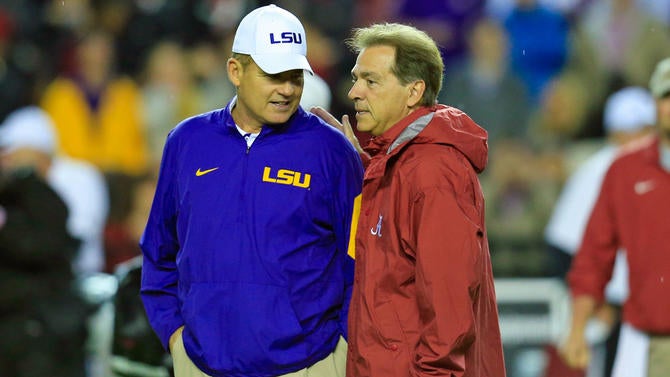
Saban becomes one of only two current head coaches with an SEC championship, along with Gus Malzahn, who might have been out of a job instead of Miles had LSU gotten a snap off on time Saturday. Saban has won 76 percent of his career SEC games; the rest of the SEC coaches have combined to win 44 percent.
While Miles' program gradually declined in recent years, the truth is LSU was never the same since Alabama's 21-0 win over LSU at the 2012 BCS Championship Game following the 2011 season. It's easy to forget just how good LSU was in 2011 and how different offense was at the time.
That LSU team was poised to be remembered as one of the all-time greats. The Tigers went 13-0 and beat eight ranked teams, including three in the top five (Oregon, Alabama and Arkansas). The roster was loaded with 19 future NFL draft picks, guys like Tyrann Mathieu, Morris Claiborne, Odell Beckham, Jarvis Landry and Michael Brockers.
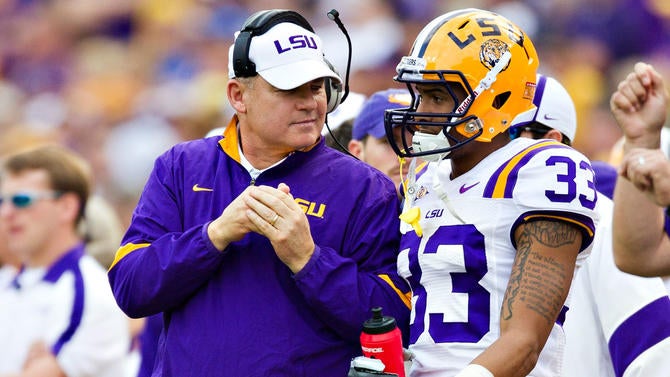
LSU had everything but a quarterback. So in a rematch of a 9-6 defensive struggle, Alabama out-uglied LSU in a national title game that featured one touchdown in the waning minutes. LSU didn't cross midfield until eight minutes were left in the game.
In 2011, LSU could play for the national championship by staying close to the vest with the 86th-ranked offense in the country. Over the past three years, five of the six national championship participants ranked 11th or better in total yards. The one outlier was 2015 Alabama, which was 45th.
By that point, though, Saban had evolved to tempo, spread formations and run-pass play options depending on his quarterback's skills. He had hired Lane Kiffin to interject new concepts and reached the College Football Playoff with two quarterbacks who didn't make it to the NFL.
Saban and Miles were probably very similar in detesting that football had changed. Saban complained in 2012 about whether no-huddle offense is "what we want football to be."
But Saban realized Alabama needed the capability to win some shootouts. From 2008-11, Saban had a 1-4 record when opponents scored at least 28 points. Since 2012, Saban is 5-5 in those instances, including a shootout win over Clemson for the national title last season.
And Miles? His offenses were built for a different time and LSU went 4-5 from 2008-11 when opponents scored at least 28 points. But since 2012, Miles went 2-8 in those shootouts as offense passed him by.
Even when he nearly got fired last year, Miles never changed offensive coordinators despite the expiration of Cam Cameron's contract. Miles didn't dramatically change LSU's offensive concepts, which have produced fewer than 150 passing yards in 17 of the past 30 games. That's a startling figure that placed LSU's passing stats since 2009 ahead of only Air Force, Georgia Tech, New Mexico, Army and Navy.
Miles decided he didn't need to change. He believed handing the ball off to Leonard Fournette in an outdated offense was the best option, even though it wasted Fournette's talent without a real passing threat to keep defenses honest.
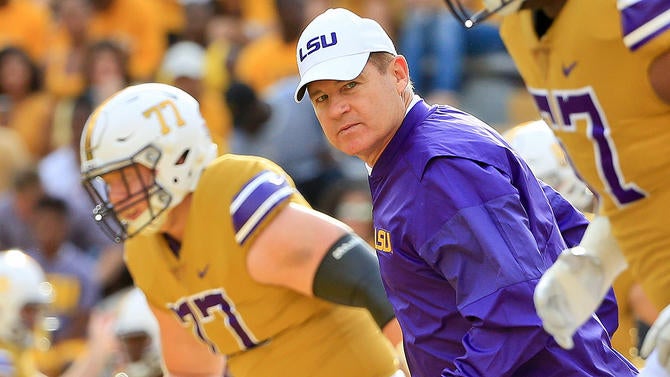
Miles elected to continue to be Schembechler, his old coach and mentor at Michigan, and keep coaching his "damn strong football team." Saban realized being Hayes doesn't work this century, and he's now No. 1 with a dual-threat, true freshman quarterback.
Saban vs. Miles will forever live on in SEC history. They'll write books the rivalry and the intense games that made Alabama-LSU a must-watch contest for so long. And now they finally have the conclusion to write.
The Sabanization of college football has long meant "The Process," the head coach speaking with one voice, the ridiculous recruiting talent, and the huge amounts of money poured into extra staff members and the psychology of competing. But more than anything, Sabanization means evolving without getting left behind.
Saban changed. Miles didn't, and it cost him his job.













